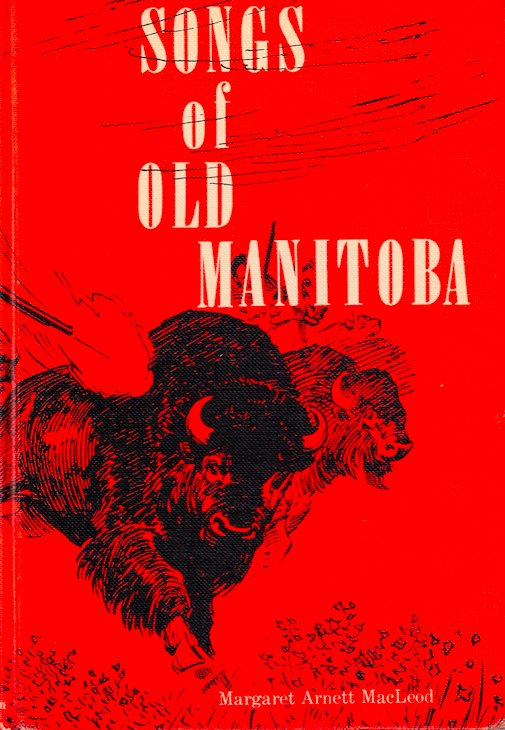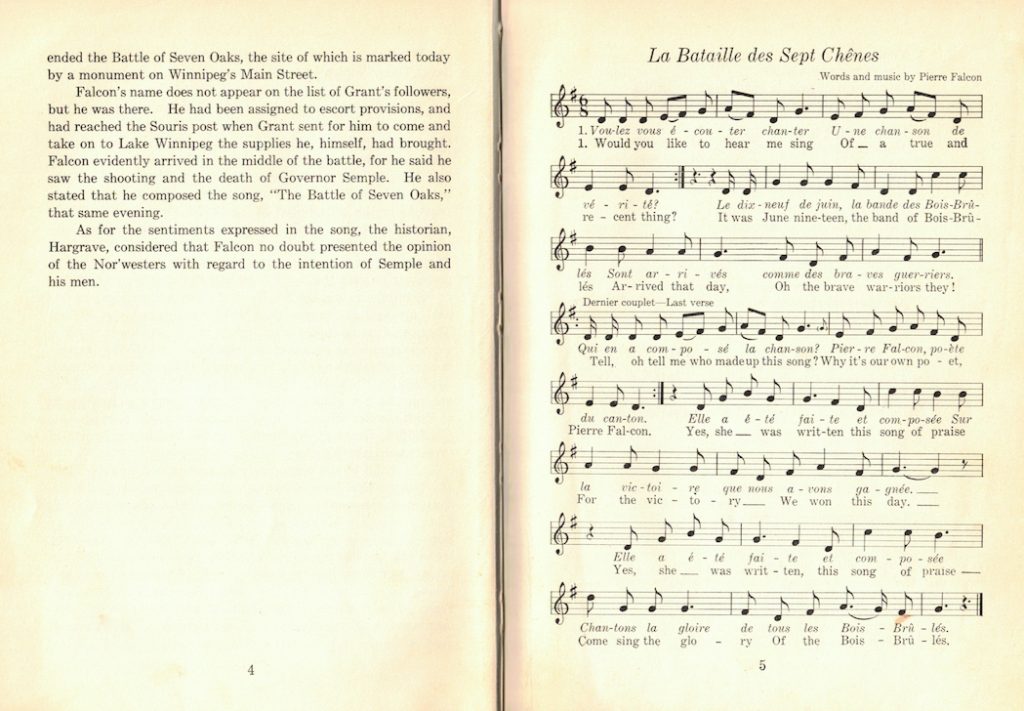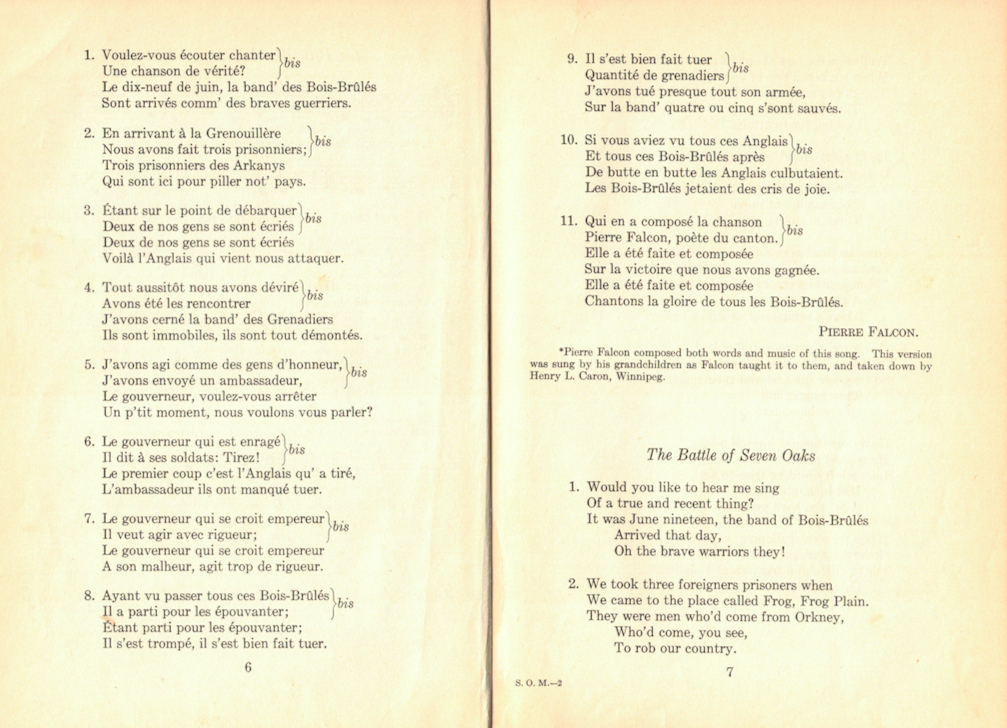
James Reaney’s translation of Pierre Falcon’s “The Battle of Seven Oaks” (“La Chanson de la Grenouillère”) can be found in Margaret Arnett MacLeod’s 1960 book Songs of Old Manitoba.
Pierre Falcon (1793-1876) was a celebrated Métis balladeer and North West Company clerk. “He had a feeling for words, a sense of rhythm, and a love of a rollicking tune. He was strongly dramatic, and his idea of the importance of the Métis Nation may have been more right than his English contemporaries were ready to concede [.…]” (MacLeod, p. 2)

(Songs of Old Manitoba, p.5)
James Reaney offers these notes on his approach to translating the song: “This translation can be sung to Pierre Falcon’s original tune with some stretching, but no more than to sing his own words requires. In making this translation I have followed Ezra Pound’s practice. Since there can be no translation so inaccurate as that which sticks closely and literally to the surface of a song, I have attempted to make only an English equivalent of Falcon’s ballad and so translate the really important thing – its high spirits.” (MacLeod, p. 9)
1. Would you like to hear me sing
Of a true and recent thing?
It was June 19, the band of Bois-Brûlés
Arrived that day,
Oh the brave warriors they!
2. We took three foreigners prisoners when
We came to the place called Frog, Frog Plain.
There were men who’d come from Orkney,
Who’d come, you see,
To rob our country.
3. Well we were just about to unhorse
When we heard two of us give, give voice.
Two of our men cried, “Hey! Look back, look back!
The Anglo-Sack
Coming for to attack.”
4. Right away smartly we veered about
Galloping at them with a shout!
You know we did trap all, all those Grenadiers!
They could not move
Those horseless cavaliers.
5. Now we like honourable men did act,
Sent an ambassador – yes, in fact!
“Monsieur Governor! Would you like to stay?
A moment spare —
There’s something we’d like to say.”
6. Governor, Governor, full of ire.
“Soldiers!” he cries, “Fire! Fire.”
So they fire first and their muskets roar!
They almost kill
Our ambassador!
7. Governor thought himself a king.
He wished an iron rod to swing.
Like a lofty lord he tries to act.
Bad luck, old chap!
A bit too hard you whacked!
8. When we went galloping, galloping by
Governor thought that he would try
For to chase and frighten us Bois-Brûlés.
Catastrophe!
Dead on the ground he lay.
9. Dead on the ground lots of grenadiers too.
Plenty of grenadiers, a whole slew.
We’ve almost stamped out his whole army.
Of so many
Five or four left there be.
10. You should have seen those Englishmen —
Bois-Brûlés chasing them, chasing them,
From bluff to bluff they stumbled that day
While the Bois-Brûlés
Shouted “Hurray!”
11. Tell, oh tell me who made up this song?
Why it’s our own poet, Pierre Falcon.
Yes, she was written this song of praise
For the victory
We won this day.
Yes, she was written, this song of praise —
Come sing the glory
Of the Bois-Brûlés.
( ( (0) ) ) Rufin Turcotte sings the original French version on this 1963 Smithsonian Folkways Recording “Folksongs of Saskatchewan”: https://www.youtube.com/watch?v=yB1knUIOSH0

Note: James Reaney’s long poem “A Message to Winnipeg” (1960) includes this translation of Pierre Falcon’s 1816 song. For more about the June 19, 1816 Battle of Seven Oaks, see the entry in The Canadian Encyclopedia.
